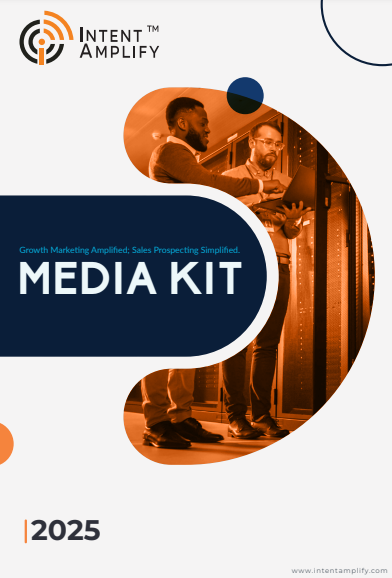
Understanding AI Agents for Email: How They Work and Why They Matter
- Last updated on: August 21, 2025
Email is hardly dead; it’s still the backbone of B2B communication and customer interaction. But in 2025, the use of email by companies is changing fast. AI agents are no longer sci-fi add-ons; they are central to how companies scale personalization, automate campaigns, and optimize customer journeys.
Email AI agents are not simply intelligent autoresponders. They are capable of intent analysis, real-time lead segmentation, and generating human-like responses, all with the ability to learn from each interaction. For B2B marketers, sales teams, and revenue leaders, knowing how these agents function and why they are important can be the difference between falling behind and establishing valuable, revenue-generating conversations at scale. Let us dive further into what AI email agents are, how they operate, and why they are transforming contemporary B2B marketing.
What Are AI Agents for Email?
Email AI agents are smart software systems that are programmed to manage email interaction with minimal human intervention. Unlike old-fashioned automation tools that use strict rules, these agents use adaptive intelligence. They can read, comprehend, and reply contextually, with tone and customer intent.
Imagine them as digital sales or marketing assistants. Rather than sending bulk messages alone, AI email agents interact. They can qualify leads, respond to customer questions, recommend the next step, and even forward critical messages to human reps when necessary. It’s not only about efficiency – it’s about crafting smarter, more responsive communication at scale.
How Do AI Agents for Email Work?
The wonder of AI agents is their multi-layered intelligence. NLP, ML, and predictive analytics are merged in the agents to provide insightful conversations. Here’s the mechanism:
1. Message Understanding – The AI reads emails coming in and recognizes intent, sentiment, and urgency. For instance, it will be able to differentiate between a customer inquiring about price and one requesting technical assistance.
2. Contextual Learning – In contrast to templates, AI agents learn from previous conversations. If a prospect once showed interest in a webinar, the agent recalls and adjusts responses accordingly.
3. Response Generation – With NLP, the agent generates replies that sound natural and professional. Certain systems even mimic your brand’s voice tone.
4. Action Triggers – The AI doesn’t merely answer – it acts. It can log information into your CRM, schedule follow-ups, or alert sales reps when a lead is sales-ready.
Because they run quietly in the background, AI agents shorten response time, catch leads before they fall through the cracks, and enhance customer experiences.
Why AI Agents Matter for B2B Marketing?
Email is still the best-performing B2B marketing channel. But scale is the challenge. Human teams can’t personalize each email, respond in milliseconds, or review thousands of interactions a day. That’s where AI comes in. The global market for AI agents is projected to grow from $5.4 billion in 2024 to $7.6 billion in 2025, driven by increased investment in automation technologies.
AI agents are important because they fill three essential gaps in B2B marketing:
1. Personalization at Scale – Rather than mass blasts, AI agents personalize engagement based on behavior, industry, or historical engagement.
2. Efficiency Gains – Automated tasks such as follow-ups, reminders, or qualification emails no longer keep sales and marketing teams busy.
3. Revenue Impact – Smarter engagement means higher response rates and quicker pipeline movement.
Significant Advantages of Utilizing AI Agents for Email
Using AI agents for email comes with short-term success as well as long-term benefits. The following are some of the major advantages:
1. Quicker Lead Response: Speed is crucial in B2B marketing. AI agents guarantee timely responses to leads, frequently in as little as seconds after being contacted. This avoids prospects from becoming cold and displays responsiveness that gains confidence. In fields where response time can seal deals, AI offers a quantifiable benefit.
2. Enhanced Lead Scoring: AI agents not only send emails but also review behavior, engagement activity, and context signals to enhance lead scoring models. This ensures that the sales force concentrates on high-quality leads, minimizing wasted effort. By scoring correctly, companies can direct their attention towards prospects with the highest conversion probability.
3. Cost Effectiveness: Repeated tasks of communication, like follow-ups, reminders, and confirmations, are time-consuming for humans. AI agents perform these processes, which cut down on operational expenses. The saved costs enable organizations to deploy resources in strategic activities like campaign development, creative copy, and building relationships.
4. 24/7 Availability: In contrast to human teams bound by business hours, AI agents operate day and night. Regardless of whether a lead interacts at midnight or on weekends, it gets the same professional communication 24/7. This availability 24/7 translates to improved customer experience and international reach.
5. Smarter Analytics: AI agents don’t merely send messages – they learn from them. They track what content works well, what subject lines engage well, and what messages get replies, yielding detailed analytics. These insights allow marketing teams to optimize campaigns, refine messaging, and hit better conversion rates over time.
Use Cases of AI Agents in Email
AI agents are multifaceted, and the uses for them extend far beyond auto-responses. Gartner predicts that at least 15% of day-to-day work decisions will be made autonomously through agentic AI by 2028, up from 0% in 2024. A few useful examples are:
1. Lead Qualification: Rather than sales reps spending hours on unqualified leads, AI agents can communicate with leads through email channels, pose initial questions, and gather necessary information. When the lead qualifies against established criteria, the AI passes it along to human reps. This speeds up the funnel and creates better-quality pipeline opportunities.
2. Account-Based Marketing (ABM): ABM demands custom communication to every account, frequently in volume. AI agents enable this by dynamically adjusting messages by industry, company size, or recent activity. AI agents permit marketers to execute ABM campaigns at scale that would otherwise be cumbersome and unrealistic with manual contact.
3. Customer Support: AI agents can answer typical questions directly via email, like password resets, FAQs, or pointing users to resources. For hard issues, they smartly forward emails to human agents with complete context, minimizing back-and-forth and allowing quicker resolution. This balance enhances efficiency and satisfaction.
4. Re-Engagement Campaigns: Bounced leads need to be nudged back into the funnel. AI agents can recognize disengaged leads and send context-based reactivation messages, like special offers, reminders of previous interest, or webinar invitations. This assists businesses in recovering lost opportunities with little or no human involvement.
5. Sales Enablement: With tracking of interactions on email threads, AI agents leave a clear record of conversation history for sales reps. When they hand off to humans, they already know what’s been said and can immediately dive into a value-based conversation. This allows for smoother handoffs and higher success rates on closing deals.
Limitations of AI Email Agents
While AI agents are strong, they are not perfect. Companies need to be mindful of some challenges:
- Over-Automation Risk – Communication can come across as robotic if it is not well managed.
- Data Privacy Concerns – AI platforms need access to sensitive customer information, which creates compliance issues.
- Integration Barriers – Smooth performance relies on how well the agent is integrated with CRMs and marketing software.
- Human Oversight Needs – AI agents still need to be monitored to secure brand consistency and correct responses.
The optimal outcomes are achieved when AI agents are utilized as helpers, not replacements. They should work to enhance human effort, but not replace it completely.
The Future of AI Agents in Email
The future is toward smarter and more independent systems. Future trends indicate:
1. Hyper-Personalization: Artificial intelligence agents will go beyond mere personalization, sending emails that are akin to true one-to-one conversations. By engaging deep behavioral knowledge and predictive analysis, they can predict customer requirements before them being articulated, producing communication that comes across as proactive and not reactive
2. Voice and Multimodal Integration: As the consumer engages in multiple channels, AI agents will move beyond email to respond in chat, voice, and even video form. Picture the following: a prospect beginning in an email dialogue, moving on to a chatbot for fast responses, and then getting a follow-up email – handled by a single AI system in a smooth fashion.
3. Predictive Sales Assistance: Next-generation AI agents won’t only respond; they will anticipate. They will review data to suggest the optimal time to contact, propose subject lines that drive the highest engagement, and even forecast when a lead is likely to convert. This predictive ability will be an effective spur to sales productivity.
4. AI-Human Hybrid Models: The future is not about AI replacing humans – it’s about collaboration. Hybrid models will leverage the scalability of AI with the creativity and emotional intelligence of humans. Companies embracing this trend will become more genuine, but efficient, in communication, finding the optimal balance between automation and human connection.
Why Your Business Should Act Now
The AI email agent adoption curve is gaining speed. Early adopters are realizing substantial ROI already, but late movers are in danger of being swamped by competitors that can reply faster, smarter, and at scale.
If your company continues to depend entirely on traditional email tactics, the moment is now. AI agents not only enhance communication, they future-proof communication. They allow companies to send personalized, timely, and impactful messages while maximizing team effectiveness. Want to witness how AI-powered outreach can revolutionize your lead generation? Intent Amplify can assist in outlining a strategy specific to your company.
FAQs
1. What is an AI agent for email?
An email AI agent is a software program that automates and individualizes email communication through NLP, machine learning, and analytics.
2. How are AI email agents distinct from automation tools?
Unlike automation, AI agents learn from context, improve with interaction, and create human-like responses.
3. Do AI agents substitute sales and marketing teams?
No, they support teams by taking care of repetitive tasks, allowing humans to concentrate on strategic activities.
4. Are AI email agents safe?
Yes, provided that data privacy rules are followed and the system is properly integrated.
5. Which industries gain the most from AI email agents?
B2B marketing, SaaS, e-commerce, and professional services are experiencing high adoption and success.




